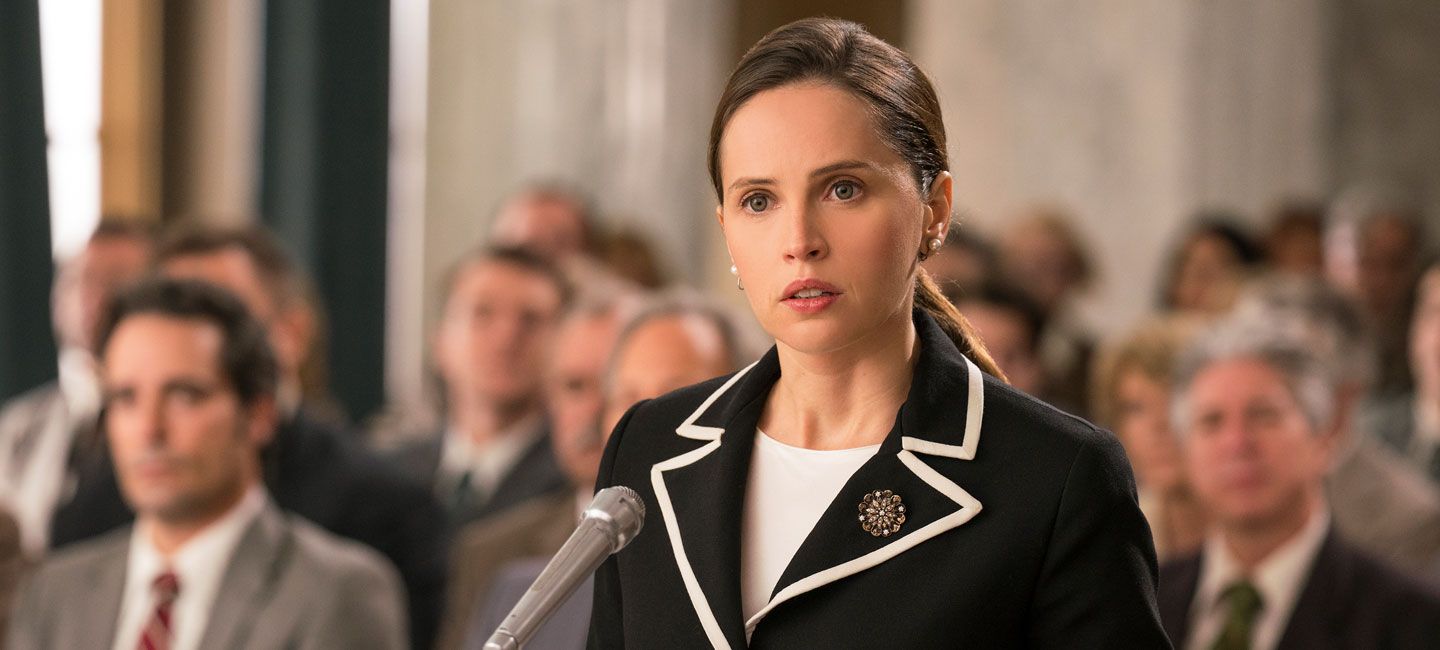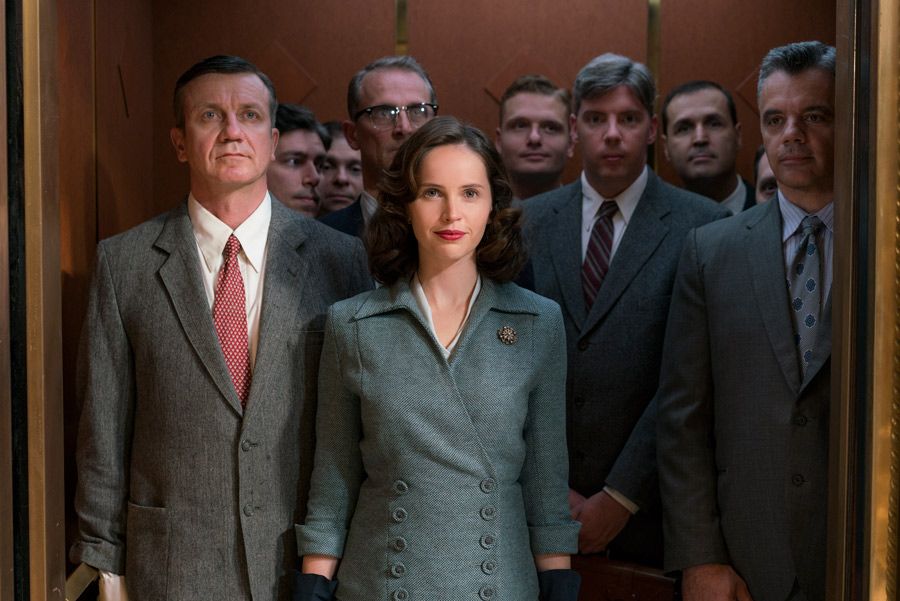
The March Towards Justice: Scoring On The Basis Of Sex
A Q&A with the Academy Award®-winning composer Mychael Danna
In On the Basis of Sex, director Mimi Leder dramatizes three decades in the life of Justice Ruth Bader Ginsburg (Felicity Jones), from her days at Harvard Law School in the mid-fifties to her arguing a groundbreaking sex-discrimination case in Denver in 1972. Part love story between Ginsburg and her husband Martin (Armie Hammer), part origin story about a woman destined to become a living legend, the film provides a moving drama about the clash of individuals and ideas. To give music to this emotional journey, acclaimed composer Mychael Danna crafted a score that highlights Bader’s unique destiny as well as the nature of judicial change in America. For over thirty years, Danna has been creating unique scores for acclaimed films, including Ang Lee’s The Life of Pi, for which he won the Academy Award® for Best Original Score
We spoke with Danna about how he found his theme for Justice Ginsburg, how the music mirrors American ideals, and why this story gives him such hope for the future.
Second official trailer for On The Basis for Sex
What were you first thoughts about music and instrumentation when you read the screenplay for On the Basis of Sex?
I try not to read scripts because the film is where the inspiration really needs to come from. When I sat down and watched On the Basis of Sex, one of the things that really stuck in my head was how the film begins with a Harvard band playing this stirring college song, a kind of marching band sound. It's great sequence but it also gave me an idea for the film. I thought it would be fun to take that kind of sound—a white, male establishment sound of snare drums and horns in a marching band vernacular—and make them Ruth's.

On the Basis of Sex composer Mychael Danna
Is that where you started your score?
Actually Mimi asked me to start, not at the beginning, but at a pivotal scene into the movie. It’s the scene in the rain when Ruth is with her daughter and realizes that the change she is fighting for has already happened. There is no need to change the hearts and minds of Americans. The laws need to catch up. It is a light-bulb moment that moves into the montage where she writes her case. She suddenly has this idea about how this case can be won. It is here that I go to the theme that was inspired by the marching band sound at the beginning. But we give it to Ruth and to her idea, her very American idea that the law is meant to evolve with American society as it changes.
How do you normally approach writing a score?
Usually I like to start right at the beginning of the film and go in order to the end because that way the themes evolve as the story is evolving. As the story unfolds, the themes sort of unfold, congeal, and come together. I would have worked on this film that way, but it turned out that what Mimi suggested, starting in the middle, was the smart way to do it. The first time that I saw the film I was so moved by it and excited by it, and all that energy went directly into the first cue I wrote, the montage sequence.
Were there other film scores or composers that inspired you?
There is certainly a tradition of courtroom dramas and part of this film has a courtroom drama. But I would not say that I referred to it, even though I am familiar with it. There is something fresh and original about Ruth Bader Ginsburg and how she lived her life that called for an original approach.
You created a specific theme for Justice Ginsburg. Were there themes for the other characters?
The other part of her story is her relationship with Martin. Their teamwork—emotionally, romantically, and spiritually, as well as professionally—is so important in this film. He was so forward thinking in that time in the way he supported his wife's career the way he did. There is something fundamental to her success that is based on her relationship with Martin. For the film, I created a love theme, which is really a partner theme, a piano piece that has the sense of a circular structure that is replete within itself.
How did you illustrate musically the conflict between the push for gender equality and the political forces that don’t want change?
That was an interesting challenge. Mimi made it clear that the old, white, male guard was not to be portrayed as bad guys, like some evil, moustache-twirling types. They are just as patriotic and American as she is. The difference is they need to understand, "Look out the window and see how the country has changed. The laws need to be made to reflect that." They are not bad people. They are just a step behind. In doing that, we had to handle their theme carefully. Their sound feels a little more stuck, lacking the forward momentum we gave to Ruth. We had to take a few cracks at it to find their theme. We wanted to be sure their music didn’t overstate things, that we gave them their due, and that there was a sense of compassion in the music. It was a challenge to find a sound for them that would do all that.

Ruth Bader Ginsburg (Felicity Jones) and an older male-centric legal system in On the Basis of Sex
The film covers a range of historical eras, from the fifties to the seventies. Did you try to represent that musically?
Often you would do that, but in this case we decided not to. The essence of Ruth is something has been constant from film's opening to the end. There is something very consistent about her character, something profoundly unchanged, which is what the score reflects. There are source songs in the film that reflect the various periods. And obviously we see the changing wardrobes and styles. But the score reflects the underlying essence of [who] she is; that sound never changes in the film.
Ruth Bader Ginsburg is an American icon. What does she mean to you?
Working on this film about Justice Ginsburg taught me so much. During the film I had this lightbulb moment where I realized that the laws don't control society. Society is free to change on its own, and then the law must catch up and reflect that. I guess it is sort of an obvious thing, but I had never put that together. For the last few years, there has been this very jammed-up conflict between two opposing ideologies in America, one being the urge to go backwards and the other to go forward. It is the same opposition in the film. This film left me with optimism that the country is constructed in a really beautiful way, that moving forward is what America is made to do. Being part of this film made me feel better about America and optimistic about the future.
Sign up for the Focus Insider newsletter to be first in line for free advance screenings, world premiere travel packages, weekend set visits, and so much more!